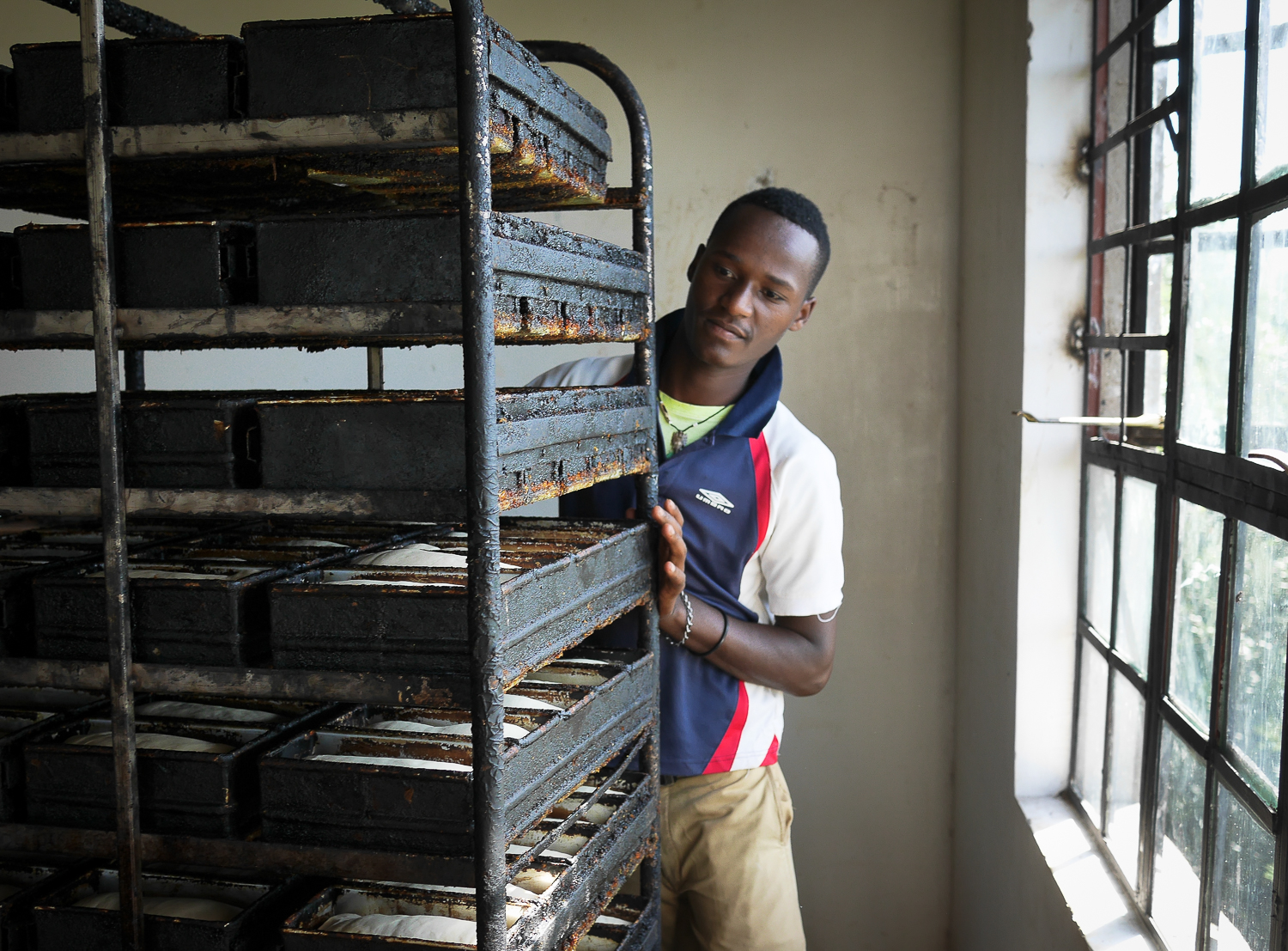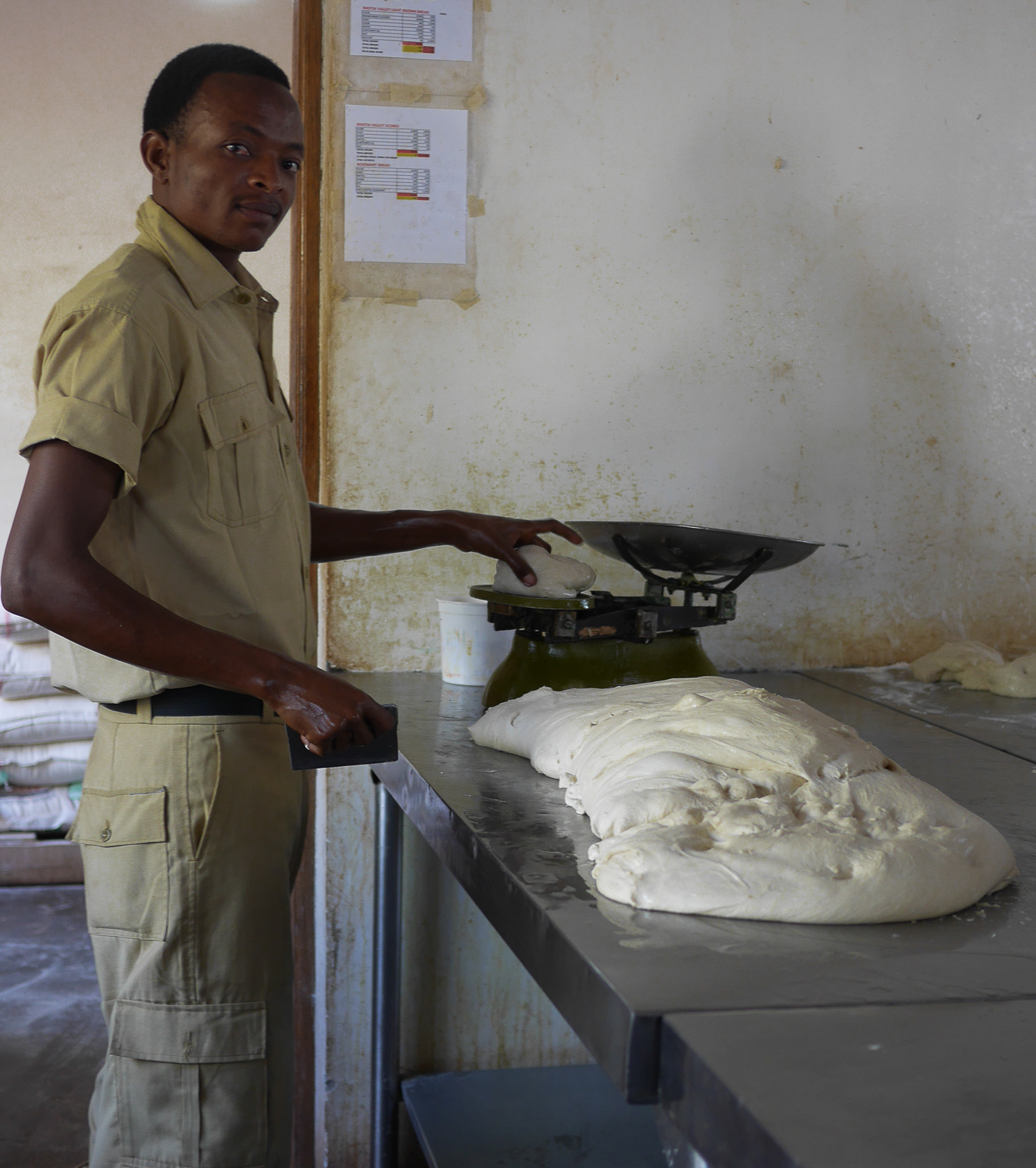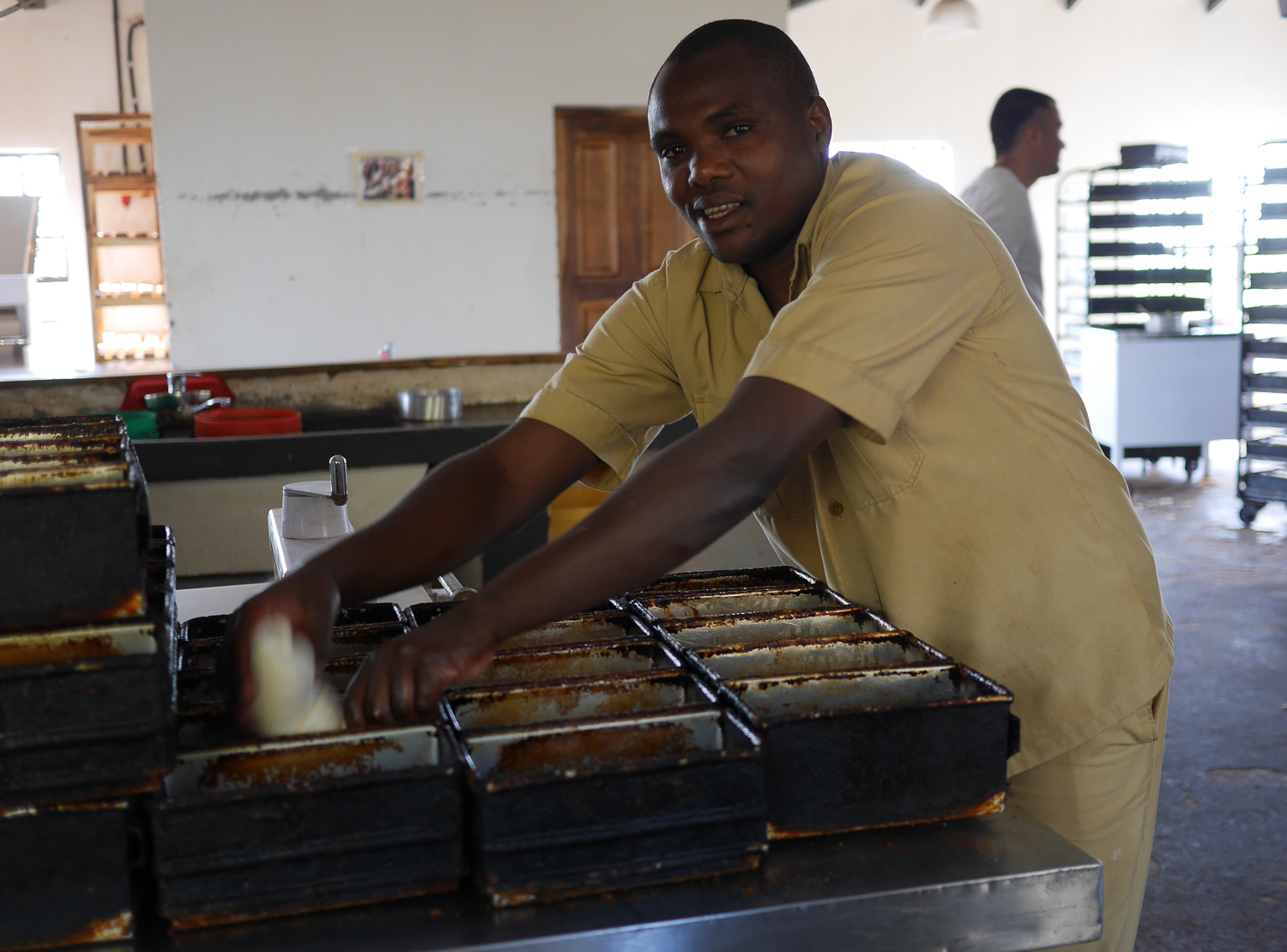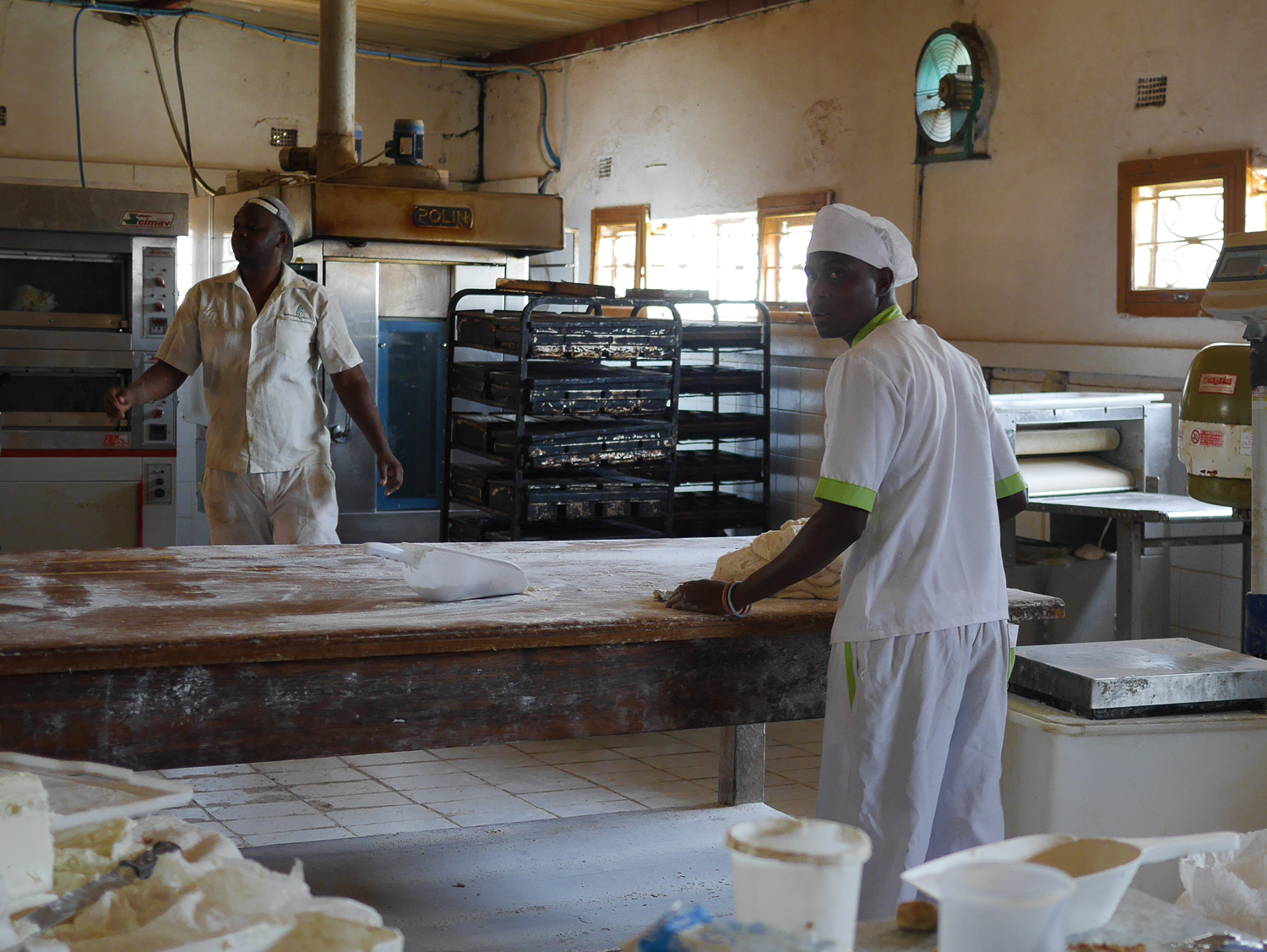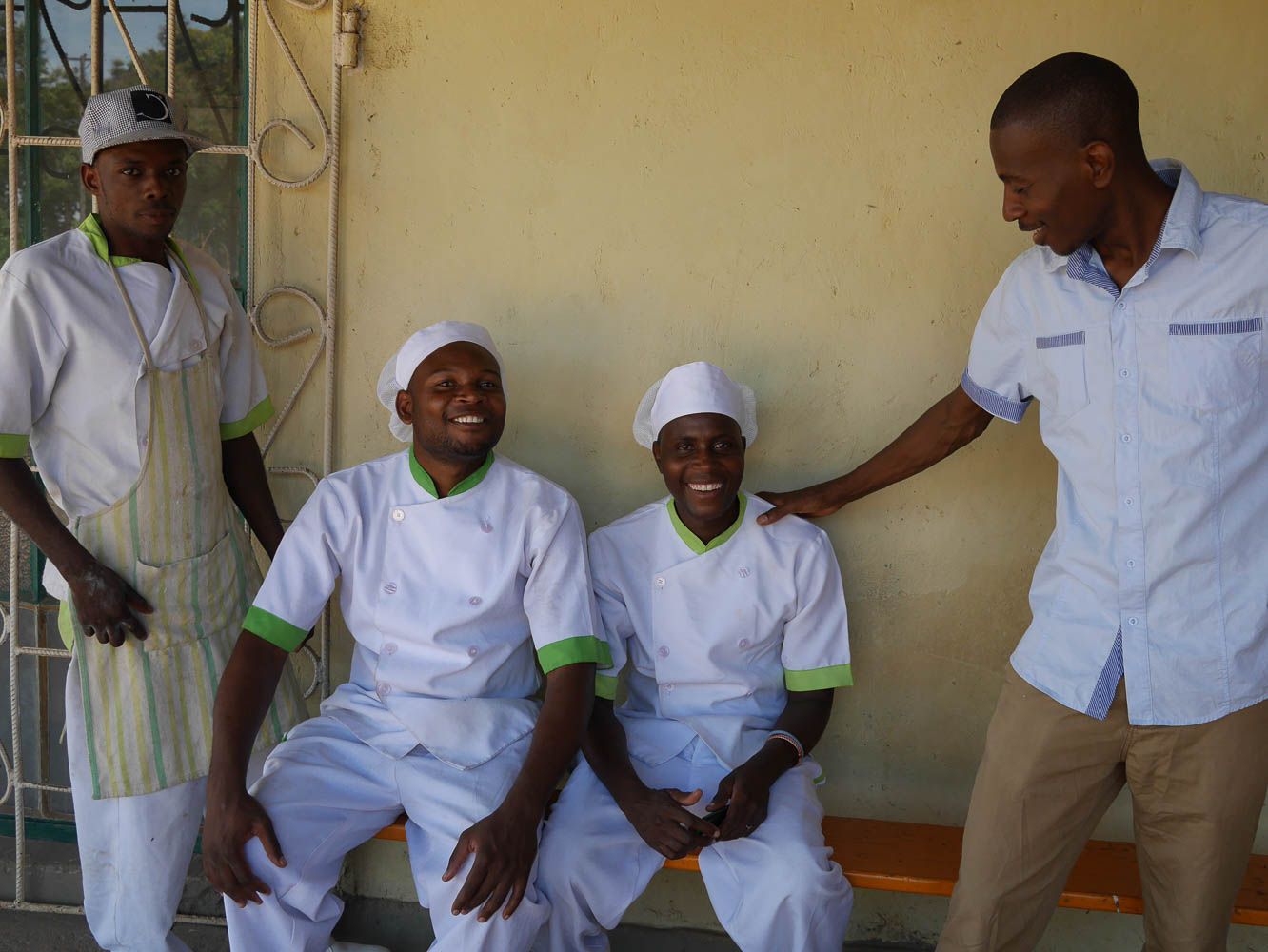Annemarie:
Well I knew we would have to have some mud at some point but wow, this is a bit much. It’s raining hard and we’re driving down a road that a website has said could be impassable in the rainy season. Martin is in a ‘determined’ mood, Hector is less sure and keeps on with his not-starting tactic which makes us very reluctant to turn the engine off. This is resulting in some long, unrelenting drives.
Ifakara is not on the beaten track, in fact we’re amazed at the amount of traffic that is also plunging down this muddy river/road; why are they all going to Ifakara? Buses are the worst. On the main Tanzam highway they have been driving crazily fast and literally pushing other drivers off the road on narrow stretches. It’s all made worse by a news report we saw a couple of days ago of a bus in a head-on collision with a couple of trucks, killing 43 immediately but with the death toll rising by the day. We thought we’d escape them on this smaller offshoot of a road but no, one ploughs straight past us and a broken down truck in front of us, shooting great washes of muddy water over the people trying to mend the truck and virtually toppling into the ditch at the side of the road. We crawl past the truck and check they’re OK, at least we’re behind the bus now. The rain gets worse, the windscreen wipers can’t really keep up, please let us arrive soon.
Then suddenly it stops and we’re pulling into a small but bustling town, looking for a convent. There’s a huge brick church at the end of a muddy road and we draw to a halt. A nun wearing a habit as dark grey as the sky but with a radiant smile greets us “We’ve been waiting for you! Come in!” Sister Olimpia is incredibly welcoming. We’ve come to see yet another (thank you Martin) bakery. This one is run by the nuns and since 2001, when the ovens were shipped in, it has been running profitably, selling to those who can afford to pay, with bread given to the very poorest in the community.
Sister Olimpia shows us through the side door of the convent to the bakery itself. The warm smell of bread is all that remains of the day’s activities so we admire the inactive mixer and the huge ovens. As I snap a picture she dashes off to grab a friend, Sister Hilda. They’re quite bubbly with the idea that we have come all the way down this road in the rain to see them and the bakery. Have we seen their new building? No, Ok, we’ll take a look. It’s going to be a much bigger shop and store and an office base for the business. Money for the building work is a problem but it’s coming in gradually.
The Ifakara bakery is the brain-child of Eugene and Margaret Schellenberg. They first visited their son and his wife and family, who were young doctors working in the area, in 1998 and were horrified at the child mortality rate – a real indicator of true poverty. They wanted to set up the bakery to provide a source of food that would be available even when the maize crop failed. So, they raised funds over the next two years, bought and shipped in ovens, trained the sisters and helped them develop the market. They then handed over the running completely. The business rapidly became self-sustaining and so their role is now to oversee the accounts and fund raise to enable the bakery to give free bread to schools, the hospital, an orphanage and a leprosy centre.
Eugene and Margaret’s son and daughter in law are now respectively Prof. of Malaria at the London School of Hygiene and Tropical Medicine and Prof. of Epidemiology also at the LSHTM. I wonder if they know Andrew and Madeleine Bastawrous - what a small world!


